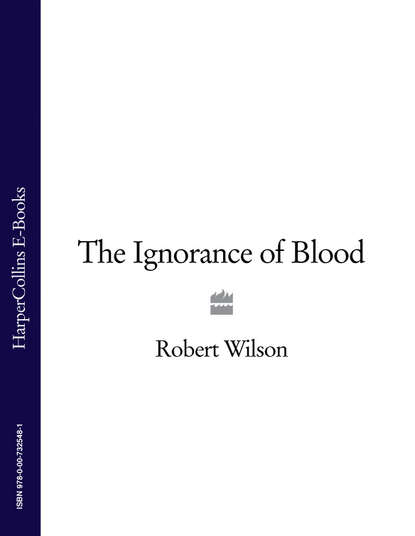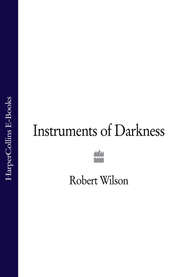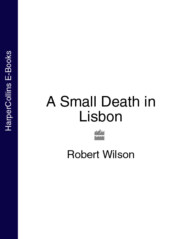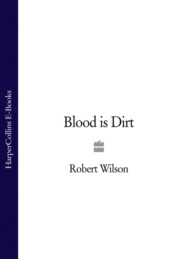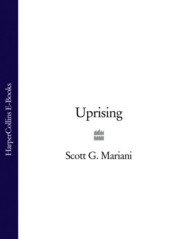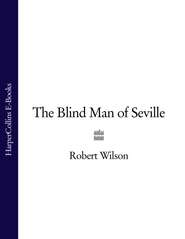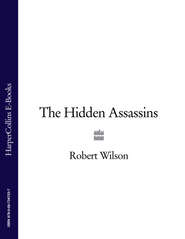По всем вопросам обращайтесь на: info@litportal.ru
(©) 2003-2024.
✖
The Ignorance of Blood
Автор
Год написания книги
2018
Настройки чтения
Размер шрифта
Высота строк
Поля
‘Dead. You see, they probably didn't put that in the report. My father died up north in Gijón in 1995. My mother died here in Seville in 1998 and two months later Margarita went missing. She was upset. That was why I was worried.’
‘Your father was Cuban?’
‘We came over here in 1992. It was a bad time in Cuba; Russian aid had dried up after the Berlin Wall came down in 1989. There's a large Cuban community in Gijón, so that's where we settled.’
‘How did your parents meet?’
‘My father had a club in Gijón. My mother was a flamenco dancer from Seville. She'd come up to perform at the annual Semana Negra fair. My father was a good salsa dancer and there's such a thing as Cuban flamenco, so they taught each other things and my mother made the mistake that a lot of other women made.’
‘So obviously she wasn't your natural mother?’
‘No, we don't know what happened to her. She was Cuban of Spanish descent, white and political. She disappeared soon after my sister was born in 1981.’
‘You were seven years old.’
‘It's not something I think about very much,’ said Marisa. ‘Things like that could happen in Cuba. My father never talked about it.’
‘So who looked after you?’
‘My father had girlfriends. Some were interested in us … others weren't.’
‘What did your father do in Cuba?’
‘He was somebody in the government. An official on the Sugar Board. Export,’ said Marisa. ‘I thought you wanted to talk about my sister, and I'm beginning to wonder why.’
‘I like to get people's family situation sorted out in my mind,’ said Falcón. ‘It doesn't sound like you had a normal life.’
‘We didn't, until my stepmother came along. She was a good woman. The caring type. She really looked after us. For the first time in our lives we were loved. She even looked after my father when he was dying.’
‘How was that?’
‘Lung cancer. Too many cigars,’ she said, waving the smoking stub in her hand. ‘He only married her after his diagnosis.’
Marisa blew a plume of smoke out into the rafters of the wooden roof. She felt she had to keep this thing going. Do one long stint with this new inspector jefe and then maybe he'd leave her alone.
‘What did you do after your father died?’ asked Falcón.
‘We moved down here. My mother couldn't stand the north. All that rain.’
‘What about her family?’
‘Her parents were dead. She had a brother in Málaga, but he didn't like black people very much. He didn't come to her wedding.’
‘How did your mother die?’
‘Heart attack,’ said Marisa, eyes shining at the memory of it.
‘Were you living here at the time?’
‘I was in Los Angeles.’
‘I'm sorry,’ said Falcón. ‘That must have been hard. She wasn't very old.’
‘Fifty-one.’
‘Did you see her before she died?’
‘Is that any of your business?’ she said, turning away, looking for an ashtray.
This cop was getting under her skin.
‘My mother died when I was five,’ said Falcón. ‘It doesn't matter whether you're five or fifty-five, it's not something you ever get over.’
Marisa turned back slowly; she'd never heard a Sevillano, let alone a cop, talk like this. Falcón was frowning at the floor.
‘So you came back from Los Angeles and you've been here ever since?’ he said.
‘I stayed for a year,’ said Marisa. ‘I thought I should look after my sister.’
‘And what happened?’
‘She left again. But she was eighteen this time so …’
‘And you haven't seen or heard from her since?’
There was a long silence in which Marisa's mind seemed to float off out of the room and Falcón thought for the first time that he was getting somewhere.
‘Señora Moreno?’ said Falcón.
‘I haven't heard from her … no.’
‘Are you worried about her?’
She shrugged and for some reason Falcón didn't think he was going to believe what he heard next.
‘We weren't very close, which was why she left the first time without telling me.’
‘Is that right?’ said Falcón, locking eyes with her across the studio. ‘So what did you do when she left the second time?’
‘I finished the course I was doing at the Bella Artes, rented out my mother's apartment, which my sister and I had inherited…’
‘Is that where you live now, in Calle Hiniesta?’
‘And I went to Africa,’ she said, nodding. ‘Mali, Niger, Nigeria, Cameroon, the Congo, until it got too dangerous and then I went to Mozambique.’
‘What about the Touaregs … didn't you spend some time with them?’
Silence, as she registered that he'd heard that from someone else.





